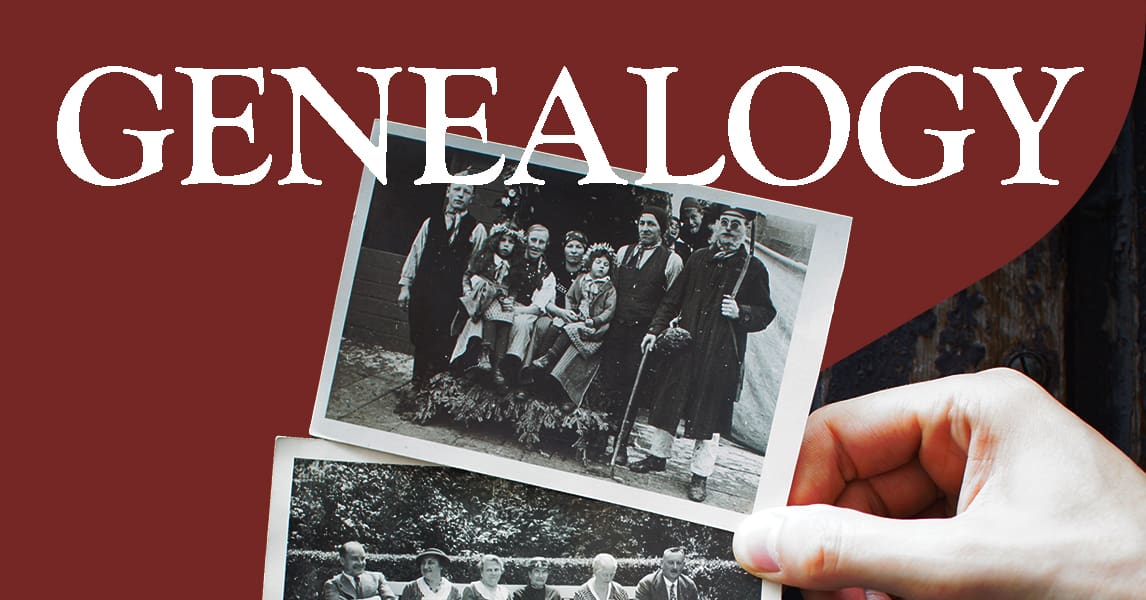GENEALOGY DROP-IN CLASS
FACILITATOR: PAUL ROSE

Paul Rose is a dedicated historian and registered genealogist, has passionately pursued genealogy since his teens, tracing his ancestry back to 1100.
Paul would love to discuss some points of interest with you at pr*******@***il.com
Meets on the 1st Wednesday of each month (July and August – summer break)
- 1:00 p.m. to 3:00 p.m.
- WSAC Boardroom
- $3.00 drop-in fee
Facilitator: Paul Rose
- Come together to tackle the challenges of researching family histories by pooling resources and supporting one another.
- Bring your laptops, tablets, pencils, and paper—whatever tools you prefer.
- New members are always welcome!
- Guests are welcome to join for a one-time visit.
QUESTIONS? PLEASE CONTACT OUR PROGRAM TEAM
- Phone: 780-483-1209 Ext. 228
- Email: pr******@*******rs.ca
- Visit our front desk
GENEALOGY DROP-IN UPCOMING TOPICS
Wednesday, February 4, 2026 – British Home Children
Dale Rutherford is arranging for a guest speaker to present on the heart-rending story of “The Little Immigrants” to Canada – The British Home Children. Over 100,000 impoverished children from the United Kingdom were sent to British dominions such as Canada, Australia, and New Zealand between the 1860s and 1940s. Facilitated by charitable organizations, they were sent with the belief that they would have a better life although many were sent to work as cheap labour on farms and in households. While some had positive experiences, many faced abuse, neglect, and hardship.
The presentation may be in person or via Zoom.
Wednesday, March 4, 2026 – Researching Land Titles in Genealogy
Paul Rose will take us on a journey through the history of land ownership in the Prairies, from the days when it was known as Rupert’s Land under the administration of the Hudson’s Bay Company, through the building of the Canadian Pacific Railway (CPR), and the subsequent distribution of land holdings by the railway and the government. Topics will include the different types of land ownership records in Alberta, where to find these records, and what information they can provide.
📂 ARCHIVED TOPICS
Click HERE to review our past topics and resources from our Genealogy Drop-In sessions!
💻 HELPFUL GENEALOGY WEBSITES
Explore a list of websites our group has used or referenced in past meetings. A great starting point for your family history research!
🗂️ GENEALOGY DOCUMENTS, REFERENCES, GUIDES & SOFTWARE OPTIONS
Curious about how to store your research? View our two-page list of Genealogy Documents, References, Guides and Software Options, that can help you organize and preserve your family history digitally.
CHECK OUT THE GENEALOGY GROUP NEWSLETTER
Active Aging Series: GENEALOGY & HISTORIC EDMONTON
On Thursday, October 24, 2024, we hosted our Active Aging Series: Genealogy & Historic Edmonton. It was a wonderful morning as we learned about the City of Edmonton Archives, the different resources available at the Edmonton Public Library and the Genealogy group hosted at our centre!
